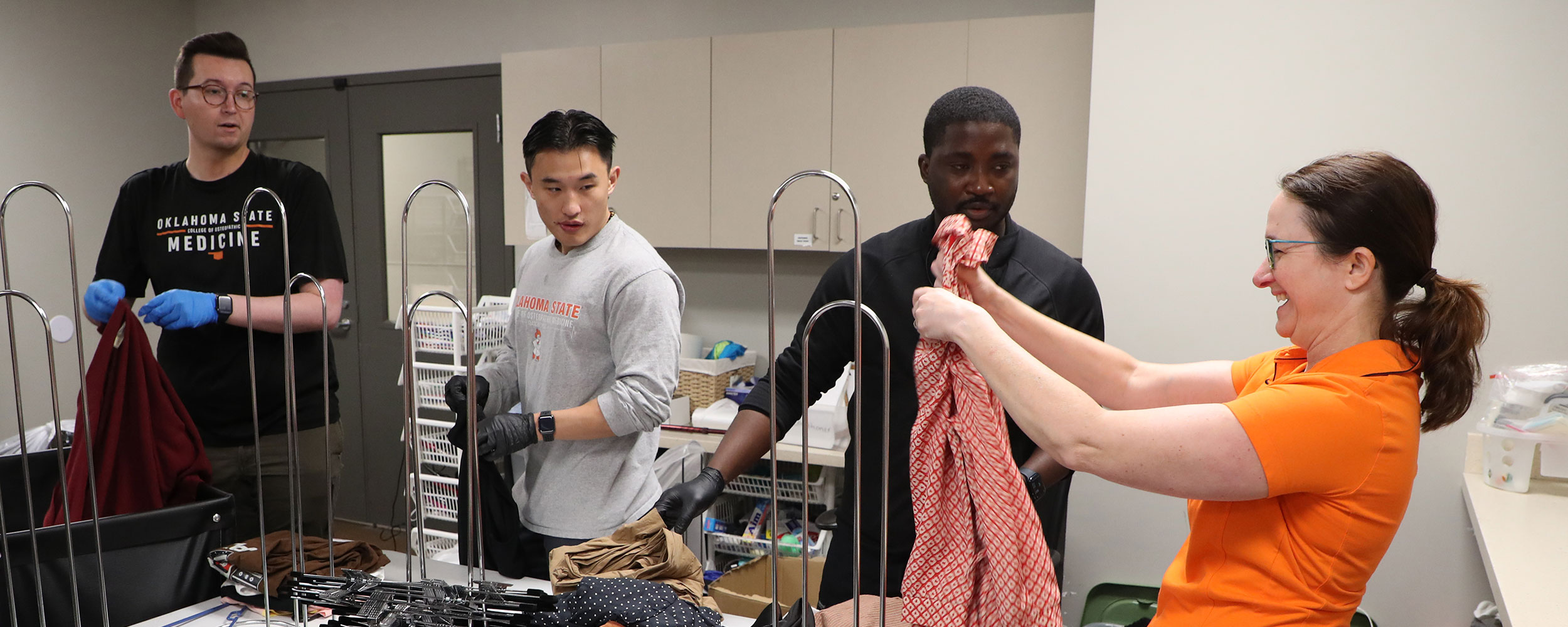
OSU-COM's Urban Underserved Medical Track aims to improve health care access
Thursday, June 5, 2025
Media Contact: Kayley Spielbusch | Digital Communications Specialist | 918-561-5759 | kspielb@okstate.edu
OSU College of Osteopathic Medicine is working to improve health care access for rural and underserved Oklahoma, and one way is through its Urban Underserved Medical Track.
“The track is designed for medical students who are passionate about improving and treating patients affected by health disparities in urban areas,” said Dr. Sarah Hall, director of the UUMT.
Established in 2024, the track welcomed its inaugural cohort of 10 students from the Class of 2026. Hayden Jacobs, a third-year medical student at OSU College of Osteopathic Medicine at the Cherokee Nation, selected the UUMT because his background in epidemiology shaped how he approaches medicine.
“I chose this track to gain the clinical experience needed to serve patients in under-resourced settings with both excellence and empathy. This work reflects a deeper calling for me: to offer care that is informed by data, rooted in dignity and faithful to the belief that every life holds value. I truly believe that life is better when we are good neighbors to one another,” Jacobs said.
To prepare students for their future roles as physicians in urban populations, the track emphasizes understanding and addressing health disparities. Health disparities are preventable differences in health that negatively impact certain groups of people.
"I've always wanted to work communities that face barriers to care and deserve better
access. This track is the right fit to help me grow into the kind of physician I want
to be."
The 2023 State Health Assessment conducted by the Oklahoma State Department of Health identified the most common disparities in Oklahoma. These include a lack of affordable care, limited access to behavioral health services, insufficient health facilities in certain areas and challenges with continuity of care, among others.
As a part of the UUMT, students receive a specialized rotation at an urban clinic during their third year of medical school. Additionally, they can choose their rotation sites based on their primary interests. Students are paired with health care mentors who work in urban or underserved communities and are available to assist with any challenges they may face during their rotations.
Third-year medical student Dennis Ayitiah's rotations have reinforced his understanding of the importance of the UUMT.
“I’ve always wanted to work with communities that face barriers to care and deserve better access. Working at Just Kids Pediatrics clinic in Tulsa has really opened my eyes to some of the challenges families go through and how much of a difference it makes when providers genuinely care and show up consistently. This track is the right fit to help me grow into the kind of physician I want to be,” Ayitiah said.
